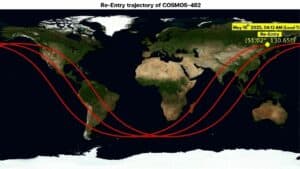Eye-watering onion prices drive Filipino black market
Millions of dollars’ worth of smuggled onions have been seized in the Philippines

Millions of dollars’ worth of onions have been seized by authorities in the Philippines, as an inflation crisis sees eye-watering onion prices in Manila‘s markets.
Up to US$11 million (350 million baht) worth of onions was impounded by officials in the Philippines last year, 30% of all smuggled farm products.
Their price soared so rapidly, that restaurants stripped them from their menus, officials warned travellers not to import them without permission and millions of pesos’ worth have reportedly been seized in raids, interfering with what supply there is. As climate change progresses, onions will be one of the first commodities to shift from a basic staple to a high-priced luxury.
Bags have been found in warehouse raids and hidden among shipments of clothing. According to the Guardian, last month, authorities uncovered US$300,000 worth of yellow onions inside containers labelled as holding blouses, slippers and various household items. A few days before that, US$500,000 worth of onions, weighing 50 tons were found hidden among pastries and bread.
One viral image sums up just how precious they have become: a bride clutches a bouquet of onions on her wedding day. Guests would be able to take home one of the expensive vegetables, she told local media.
But besides the wedding humour and police raids, however, there are stories of misery for both shoppers and farmers. This week, President Ferdinand Marcos Jr described eye-watering onion prices as “an emergency situation.”
The rise in onion prices has been unprecedented. The cost per kilogram reached US$13 in Manila in December – more than the daily minimum wage in the national capital region. Prices have since fallen, but a kilogram of onions still costs more than a whole chicken.
It is not only onions that have soared in cost. The price of eggs is out of control, and the country has also faced a shortage of sugar, which is no bad thing considering the plague of diabetes that afflicts the overweight nation.
The crisis has heaped pressure on Marcos, who appointed himself agriculture secretary when he took office, promising he would boost production at a time when global food prices have risen sharply.
“Before it was sugar, now, it’s onions. We’ll end up having a hearing for everything in the kitchen,” said Senator Grace Poe at a senate hearing. She, like many others, has called for Marcos to appoint a separate agriculture secretary, arguing that they would have more time to address the problem.
Experts and farmers’ groups have proposed various reasons for the onion crisis – from a lack of cold storage to rising post-pandemic demand, smuggling and the impact of natural disasters.
“Despite the lack of official statistics on onion production for 2022, the onslaught of Typhoon Karding, with … Noru in Nueva Ecija … most likely reduced local production,” said Prof Bates Bathan, of the University of the Philippines Los Baños.
Others point out that natural disasters are not uncommon in the Philippines, and that the government should have planned ahead and imported extra supplies much earlier. Warnings of looming shortages were made as early as August.
Lanzona suspects the cause of the crisis is distribution rather than supply. A lot of smaller businesses closed during the pandemic, skewing the market and giving bigger players extra clout.
Marcos, who has criticised food imports in the past, permitted the import of 20,000 tons of onions earlier this month, with the first shipment arriving this week. But farmers say it’s coming too late, and that the produce will arrive just as local farmers harvest their crops.
Farmers’ representatives say they are already facing an immense struggle to stay afloat, with one group telling the Rappler news site that prices at Manila’s markets are far higher than what the farmers are paid for them. The prospect of imported goods is also a new threat.
The Department of Agriculture has told local media there will be limits on imports to minimise the impact on local farmers. In an interview with CNN Philippines, Marcos said there was no option but to import, and that he would also focus on improving production and cracking down on smuggling.
Latest Thailand News
Follow The Thaiger on Google News:
































